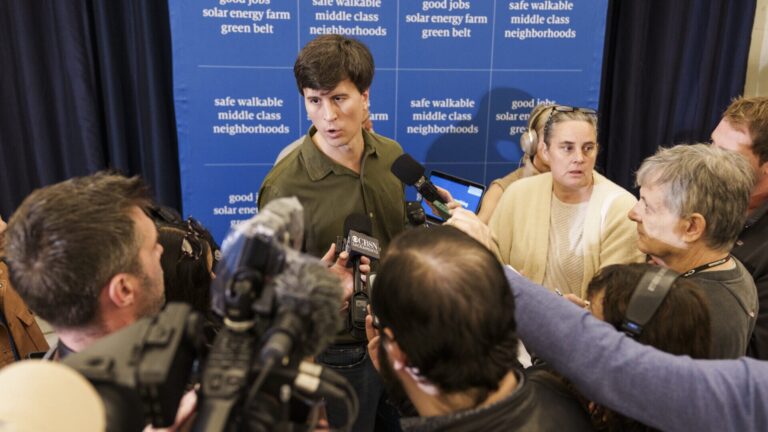Is the California Forever Project over yet? If not, it’s a serious blow.
Last year, it was announced that a company backed by a Bay Area billionaire was planning to spend $800 million to buy 60,000 acres of farmland in Solano County and build a new city. After reaching out to the local community and promising a vision for the city, the project was officially put on a referendum, meaning residents could vote to approve the project in November. But on Monday, the project’s backers formally withdrew the vote.
The plan was scrapped just days after the Solano County government released a scathing impact report that said the project would impose a huge financial burden on local taxpayers, cause a surge in local traffic, and may be “financially unfeasible” in the long term. The government report, prepared by the county’s Board of Supervisors, estimated that taxpayers could be on the hook for $6.4 billion in the project’s initial development phase and could end up having to shell out as much as $50 billion by the time the city is completed.
California Forever updated its website to say that the ballot measure has been withdrawn and that the developer will pursue a different course of action to make it happen.
Backers of the project tried to get around traditional requirements and seek legal approval by voters before a full environmental impact report or development agreement had been signed. Now, the project site features a “joint statement” from the project and Solano County Board of Supervisors Chairman Mitch Mashburn, acknowledging that the decision “was a mistake” and that it “politicized the entire project, made it difficult for us and our staff to work with them, and forced everyone in the community to take sides.”
The county’s impact report also focuses on the severe budget gaps that would have to be overcome if the project were to go ahead. Essentially, the development as currently envisioned is hugely underfunded, and it’s unclear where that money would come from. The county could have hypothetically created something called a Community Facilities District (CFD), a special taxing district that could generate more revenue by taxing homeowners’ property to pay for government services. But, according to the report, that would ultimately not solve the massive budget problem, and would have resulted in an exponential increase in the deficit.
The report also said the plans could result in traffic congestion for local communities. “Severe congestion is expected to occur on sections of the motorway and local roads,” it said.
Other concerns cited in the report include a lack of transparency and clarity from the developer to the local communities most affected by the project, with local city officials expressing concern about a lack of detailed information on “technical aspects”. [of the project] The report noted that “critical issues such as water supply, infrastructure and environmental mitigation” are substantially lacking.
“Overall, the high costs of infrastructure and public services make the financial feasibility of the project questionable, resulting in significant annual deficits with no clear revenue stream,” the report concluded. Local city leaders “have expressed skepticism of the proposed initiative, citing a lack of information and potential negative impacts to traffic, water resources, the environment and the existing community,” the report added.
Gizmodo has reached out to California Forever for comment and will update this article if they respond.


